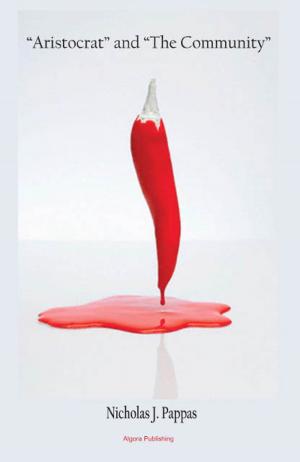| Author: | Richard Connerney | ISBN: | 9780875866505 |
| Publisher: | Algora Publishing | Publication: | December 15, 2009 |
| Imprint: | Algora Publishing | Language: | English |
| Author: | Richard Connerney |
| ISBN: | 9780875866505 |
| Publisher: | Algora Publishing |
| Publication: | December 15, 2009 |
| Imprint: | Algora Publishing |
| Language: | English |
India's future will be determined not only by economic development, but also by a dynamic traditional culture that continues to develop along its own lines sometimes in concert, and sometimes in conflict with material enrichment.
India develops not, as one writer has suggested, in spite of the gods. Rather, the seed for the creation and the fuel for the sustenance of IndiaÂs economic boom lay in its traditions, and, I will argue, the animating spirit of its future lies there as well.
I have neither the expertise nor the access to operate as a political correspondent, nor the desire to posture as a political pundit. During eighteen years of research, however, I have seen what I perceived as a pervasive misrepresentation of recent developments in Indian politics. More specifically, a number of recent books consistently paint the Hindu right wing in India as essentially fascist or theocratic. My observations show that these claims are untenable and misrepresent a positive development in the history of Indian democracy.
To think clearly about the changes in todays India we require a new model: the bi-directional banyan tree, a symbol borrowed, ironically, from ancient Sanskrit verses. Pindar claimed, Custom is King of all, and this serves as a succinct expression of the central thesis of this book.
India's future will be determined not only by economic development, but also by a dynamic traditional culture that continues to develop along its own lines sometimes in concert, and sometimes in conflict with material enrichment.
India develops not, as one writer has suggested, in spite of the gods. Rather, the seed for the creation and the fuel for the sustenance of IndiaÂs economic boom lay in its traditions, and, I will argue, the animating spirit of its future lies there as well.
I have neither the expertise nor the access to operate as a political correspondent, nor the desire to posture as a political pundit. During eighteen years of research, however, I have seen what I perceived as a pervasive misrepresentation of recent developments in Indian politics. More specifically, a number of recent books consistently paint the Hindu right wing in India as essentially fascist or theocratic. My observations show that these claims are untenable and misrepresent a positive development in the history of Indian democracy.
To think clearly about the changes in todays India we require a new model: the bi-directional banyan tree, a symbol borrowed, ironically, from ancient Sanskrit verses. Pindar claimed, Custom is King of all, and this serves as a succinct expression of the central thesis of this book.















